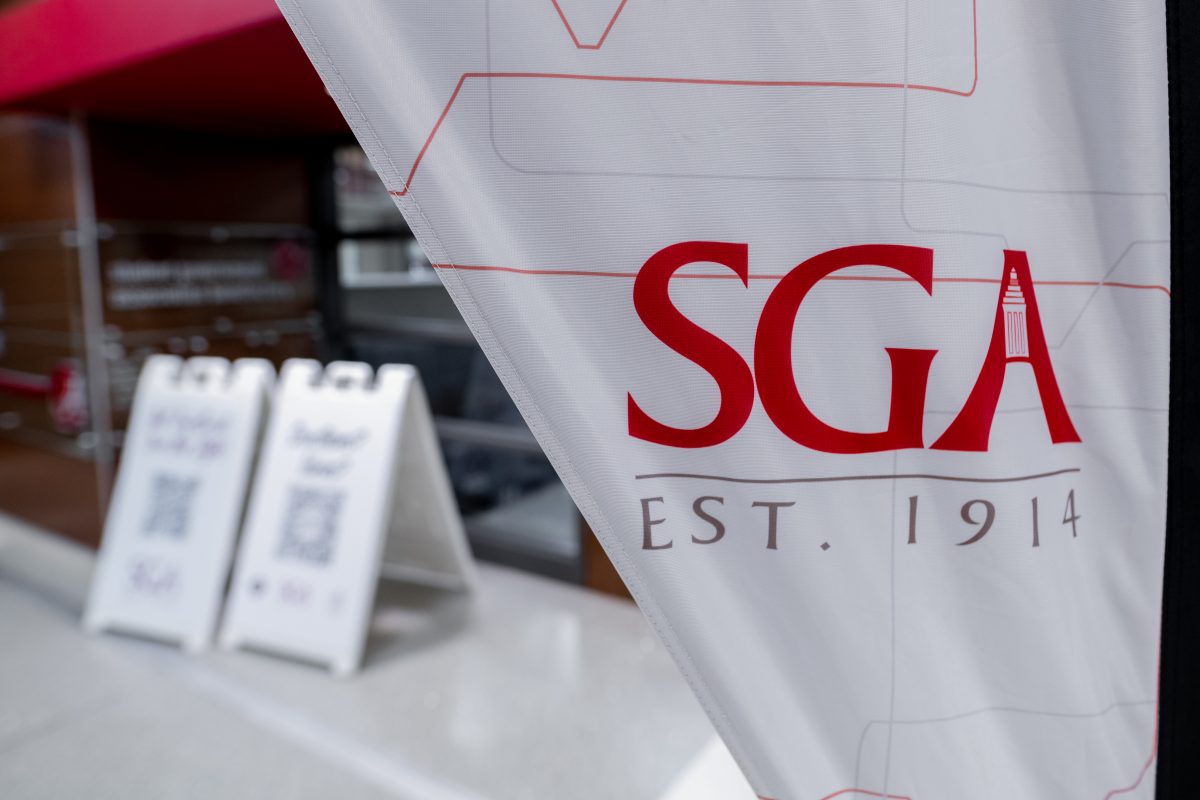SGA held the Capstone Wellness Explorer kickoff event on the Student Center lawn on Thursday to introduce the new CWE program. The program encourages students to attend events in the “Alabama Model of Student Health and Wellbeing.”
The CWE replaced the DEI Passport program, which encouraged students to attend diversity, equity and inclusion events and was discontinued following Senate Bill 129.
Clubs that fit into the “7 dimensions of Student Wellness” — which include academic, social, spiritual, career, financial, psychological and physical wellness — can apply to have their events qualify for the program. The SGA said previously that events from identity-focused organizations, which were the focus of the now-defunct DEI Passport Program, will be approved for the CWE if they relate to one of the seven dimensions of wellness.
If events are approved, they will be eligible to receive Capstone Explorer points, which will vary from event to event, depending on their length and purpose.
Capstone Explorer points are part of a point system implemented by SGA with the creation of the program that largely mirrors the system used for the DEI Passport.
“11% of the block seating seeking process for the 2025-2026 school year goes through those points programs,” said Aubrei Grisaffe, SGA vice president of belonging and wellness.
SGA hopes this will incentivize both organizations and individuals to register for events, Grisaffe said.
Organizations need a point total of 1.125 times the number of the seats they request.
If students receive a point in all 7 categories, they will also receive a graduation cord, Grissafe said.
The event had 27 organizations present, informing students about the resources they offer.
One such organization is the Queer Student Association. QSA social media chairperson Mia Massey said the SGA has been helping them “in ways that they can” since the passing of SB129 and that “we’d rather have something rather than nothing.”
Massey said she appreciated the tabling and emphasized how important it was to be able to provide resources and communication after the closure of the QSA’s Safe Zone.
“A lot of people have been asking us, where do we go?” Massey said. “The Safe Zone was a safe place, but also just a fun little spot to be. If someone didn’t want to eat their food in the Student Center alone, they could go there. If they wanted to try to meet people, they could go there.”
Massey said QSA is trying to counteract this with their new standing study hall reservations in Russell Hall Room 221 from 12-5 p.m. on Thursdays. These are taking the place of the removed Safe Zone, Massey said, though she admitted there were noticeable differences.
“The Safe Zone gave people jobs as well as a place to talk [and] build community, and our study hall can only do so much, so it’s literally just an empty room for people to be in,” Massey said.
The University of Alabama NAACP was another program tabling at the event. Jakobe Bibbs, president of the chapter, said the chapter was “stagnant for a few years,” but through efforts made during the spring, it was back and running again.
Bibbs said the event was a great opportunity for increased outreach for the new chapter. He said the table had a “great turnout” and many people who engaged with them.
He added that SGA was very transparent with its communication.
Keonwoo Park, a freshman business management major, said he attended the event after he saw it while walking by. He said his experience was “wonderful” and that he was intrigued by the various groups, especially the Tide Against Suicide table because of how important an issue it was.









